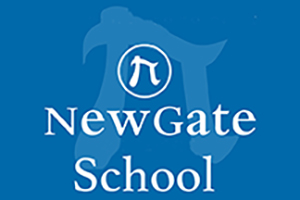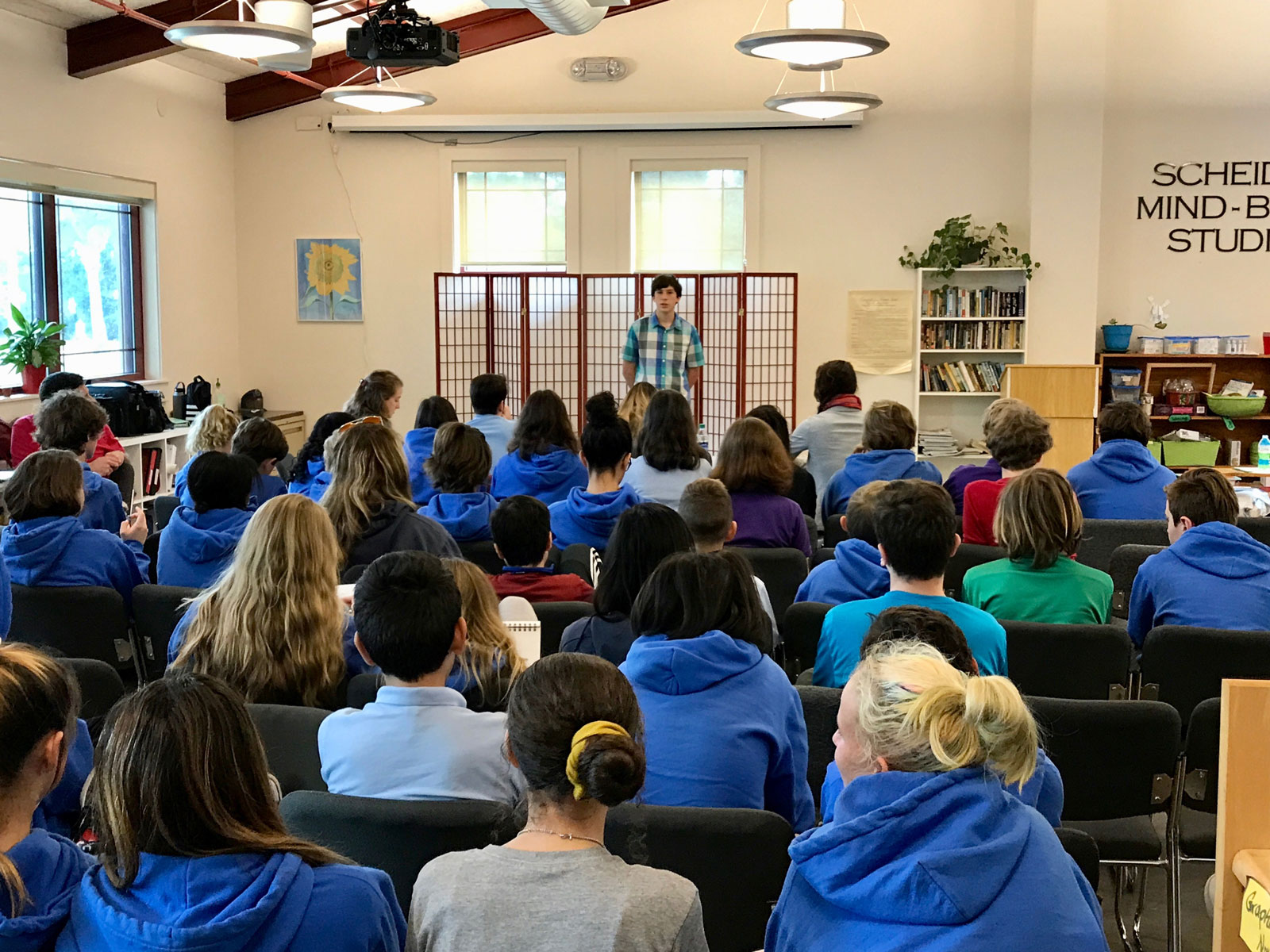Our Secondary Program
NewGate School has offered grades 7 – 12 since its first graduating class in 2004. Essentially all of our graduates have gone on to complete college or university, and many have continued on to graduate or professional studies. The school is accredited by Cognia for independent schools and the International Montessori Council (IMC). NewGate is authorized by the International Baccalaureate Organization to offer the IB Diploma Program for students in grades 11-12. The school’s course of studies is recognized by the Florida Bright Futures Scholarship Program.
NewGate offers a Montessori Secondary program that consists of experiences both in the classroom and outside that support students in developing greater self-awareness and engagement with a complex world.
The program also provides a wide range of experiential learning opportunities interwoven throughout the curriculum to respond to the developmental needs of adolescents, including orientation trips, internships, drama immersions, film festival immersions, and local, national, and international research trips.
NewGate prepares students for life in the 21st Century by incorporating Montessori’s secondary educational philosophy, focusing on the activities of practical life, wellness education, and valorizing the distinct needs of each adolescent.
The core of our program is Montessori, which consists of ‘integrated academic components’ in three overarching areas: Self-Expression, Emotional Development, and Preparation for Adult Life. Within these recognized areas, the secondary program offers students rigorous coursework in a variety of academic subjects, including drama-immersion weeks; experiential learning and in-the-field experiences; a range of seminars and collaborative learning projects; training in organization and personal responsibility; and an internship week, which has proven very successful over the years. Because of the level of commitment and independent self-directedness required of our NewGate secondary students, applicants should play an active role in deciding whether to apply.
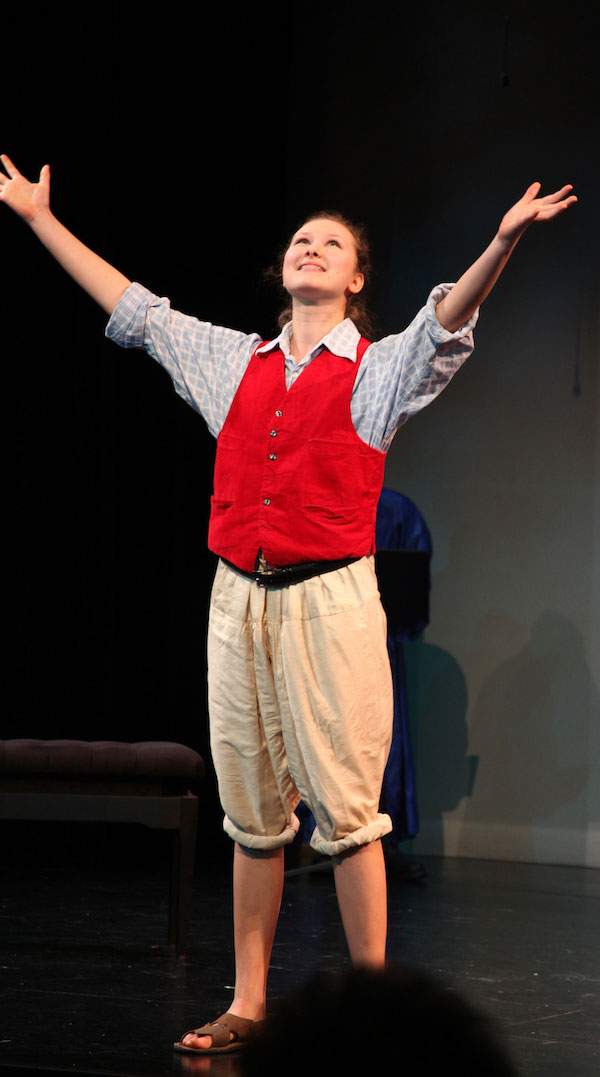
NewGate’s international emphasis also offers students opportunities for travel, not to mention an international student population, which brings the world home to NewGate, broadening student perspectives, and engaging different ideas and ideologies. In addition, NewGate’s dedication to the development of the whole human being emphasizes community meetings and adherence to Montessori rules of grace and courtesy, which govern and inform all interactions on campus.
Education is not only gained from books and through coursework. As Montessori defined it, education is ‘an intellectual and moral process that renders individuals capable of making their own way in life.’
Cycle 1: Grades 7 & 8
“Only practical work and experience lead the young to maturity.”
—Maria Montessori
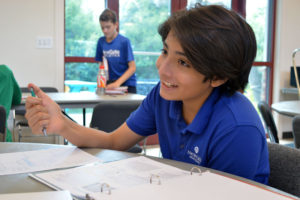 Students are intensely aware of themselves during early adolescence, between the ages of roughly 12-14. The world of an early adolescent revolves around identity, self-expression, and peer social relations. They are making a gradual move from a concrete to a more abstract understanding of the world. Early adolescents seek meaningful, challenging work and have a great need to belong.
Students are intensely aware of themselves during early adolescence, between the ages of roughly 12-14. The world of an early adolescent revolves around identity, self-expression, and peer social relations. They are making a gradual move from a concrete to a more abstract understanding of the world. Early adolescents seek meaningful, challenging work and have a great need to belong.
The First Cycle of the Secondary Program fosters a safe and participatory community where students are encouraged to try on the roles of historian, artist, cook, author, researcher, scientist, athlete, naturalist, mathematician, and global citizen throughout the curriculum. Students take integrated, multi-age classes each year in science, math, history, English, Spanish, art, physical education, and practical life that parallel current traditional standards for academic coursework and set the foundation for Second Cycle, high school level work.
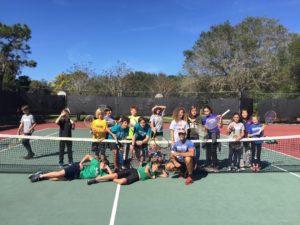 The multi-age classes support cooperative peer learning and positive role modeling. Classes tend to be small, with a high level of student-teacher interaction and student choice. Coursework across the curriculum includes research, projects, presentations, discussions, writing, and reading using a wide variety of experiential activities. Students are expected to demonstrate thoughtful work across the curriculum.
The multi-age classes support cooperative peer learning and positive role modeling. Classes tend to be small, with a high level of student-teacher interaction and student choice. Coursework across the curriculum includes research, projects, presentations, discussions, writing, and reading using a wide variety of experiential activities. Students are expected to demonstrate thoughtful work across the curriculum.
We strive to support the unique psychological development of young adolescents, creating an environment perfectly crafted to nurture their growth.
Their main classroom is a large, inviting space where students can freely roam, meeting their needs for exploration and autonomy. We’ve designed a secure and comfortable environment, allowing for a smooth transition between classes while fostering adaptability.
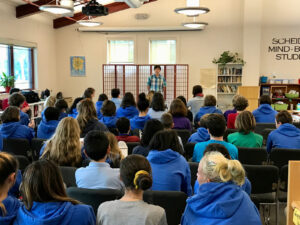 Our schedule has weekly open work times that give students the opportunity to exercise decision-making, hone their time management skills, and progress at their own pace. It’s a time dedicated to promoting personal growth and independence.
Our schedule has weekly open work times that give students the opportunity to exercise decision-making, hone their time management skills, and progress at their own pace. It’s a time dedicated to promoting personal growth and independence.
Our classroom is led by two committed Montessori guides. Utilizing their ‘renaissance’ teaching style, they cover a wide array of subjects instead of focusing on just one. This approach ensures a comprehensive understanding of each student’s needs, enabling a close-knit bond between the guides and learners.
The Montessori classroom is a mix of different ages, encouraging mutual growth and development. This environment promotes natural mentorship, with older students displaying leadership, courtesy, and grace to their younger peers. Meanwhile, the younger learners have a multitude of role models to observe and engage with.
The first year of the cycle for 7th grade students serves as a bridge to the academic and social challenges of the entire Secondary Program experience. By the end of the 8th grade, students should have achieved a solid educational foundation for high school work and a healthy sense of self, leadership, and community responsibility.
The course of studies encompasses both Montessori standards and those of the State of Florida.
Curriculum Overview
Humanities: Middle school humanities will follow a two-year cycle with a significant focus on history. The first cycle explores Afro-Eurasia and the Americas in the 13th century, diving deep into the rise of Islam, the Silk Road’s trade networks, and the influence of the Mongols. We will also discuss civilizations ‘across the pond,’ like the Aztecs, Incas, and Mayans. This cycle will conclude with an investigation into the Age of Discovery.
In the second rotation, students will examine 19th-century revolutions, geopolitical concepts such as nationalism, liberalism, nation-states, and governance forms. This cycle ends with a focus on the Industrial Revolution. Instead of tests, students will showcase their understanding via essays, Socratic discussions, DBQ’s (document-based questions), and three-reads activities.
Algebra One: This course, which follows the Pre-Algebra course, prepares students for advanced mathematics. It delves into Factoring Polynomials, Graphing, Systems of Equations, Rational Expressions Evaluation, and Quadratic Equations.
Science: Following a two-year rotation model, science classes alternate between earth science (abiotic factors) and life science (biotic factors). Teaching methods, like Socratic Seminars and project-based learning, allow students to choose how they display their understanding. Open book/open note assessments will facilitate practice of note-taking, information gathering, and test-taking strategies.
Algebra Foundations: This course prepares students for Algebra One by covering essential pre-algebra concepts.
Language Arts: The class meets twice a week, with one session focusing on writing workshops—grammar, syntax, sentence structure, and paragraph development—and the other on literary analysis—plot structure, figurative language, and other literary devices.
Microeconomics: This course centers on entrepreneurship. Students will run two small businesses, the NewGrape Store and the NewGrape Market, with all proceeds supporting the adventure trip to Camp Winona.
Spanish: Catering to varying levels of Spanish exposure, we design lessons that cut across all levels. Students also work on individual projects based on their interests and Spanish language experience, sharing their work collectively for everyone’s benefit.
Enrichment Activities
Group Work: Collaborative projects are central to the middle school experience, teaching students to cooperate, communicate, and hold themselves and their peers accountable.
Sarasota Explorations: This unique initiative allows students to experience the larger Sarasota community, covering community service, experiential learning, and team building. Activities include county park and beach cleanups, experiential learning linked to school subjects, and community building activities outside campus.
Unity Trip and Adventure Trip: These outings, to Day Springs and Camp Winona, aim to foster community building, encourage students to step out of their comfort zones, and develop their independence.
Parent Involvement
Volunteering and Room Parents: We view the parent/teacher relationship as a partnership and warmly welcome parent involvement. The role of a ‘room parent’ is pivotal in coordinating volunteer efforts for various activities throughout the year and in strengthening the middle school parent community.
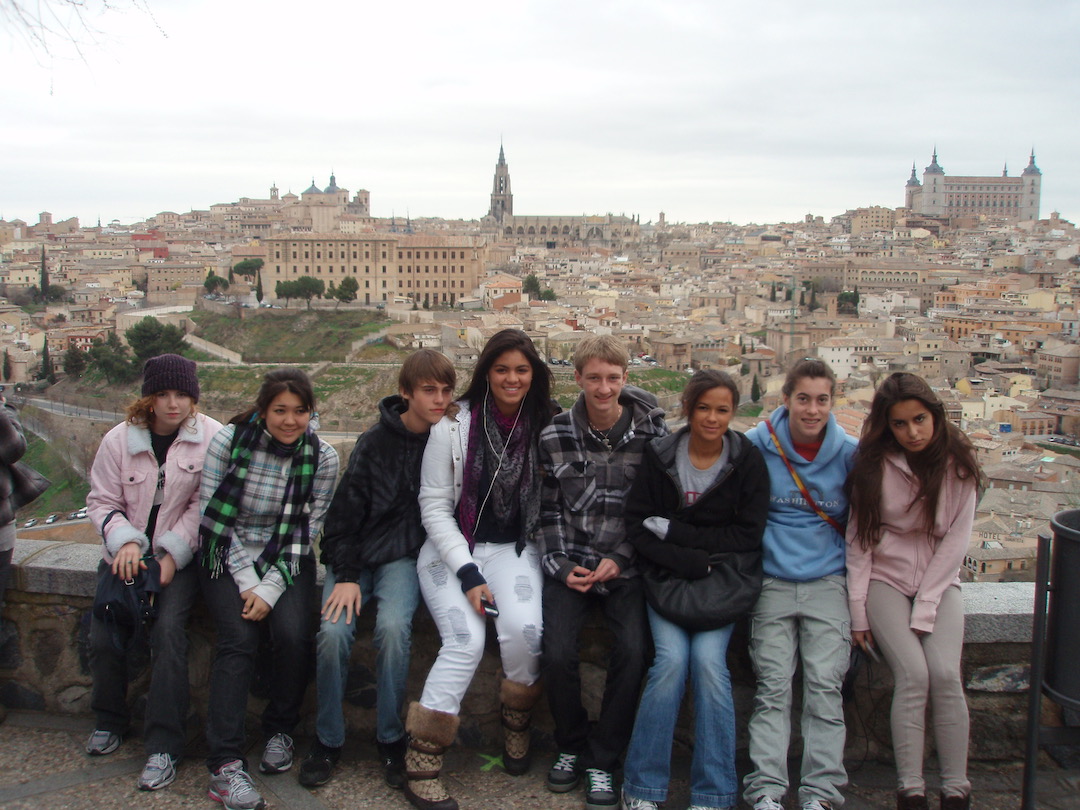
Second Cycle – Grades 9-10
Language Arts
Students develop confidence in self-expression while developing their own personal voice in the two-year cycle of courses in language arts. Training in the skills of critical reading, seminar discussion, and the writing process allows students to use literature and writing as tools for exploring their own emerging beliefs and values and to become authors and lifelong readers. Students read teacher and student-chosen novels each year, some of which correspond to the themes they are studying in history or science. Students also learn to write in multiple genres including business letters, responses to literature, essays, newspaper articles and poetry. In the context of their reading and writing projects, students continue to work on grammar, spelling and punctuation.
1 credit Language Arts C (for high school credit as English I)
1 credit Language Arts D (for high school credit as English II)
Mathematics
Courses in mathematics are designed to build on the mathematical capacities and problem-solving techniques developed in the First Cycle. The sequence of courses in mathematics emphasizes the development of logical-mathematical capacities and the ability to apply problem-solving techniques to practical life scenarios. Students learn to use scientific and graphing calculators during their transition from arithmetic to algebra to geometry and work. Opportunities exist for students showing initiative and follow through abilities to progress at an accelerated pace. Algebra coursework involves solving for variables, graphing equations with an automatic grapher, properties of exponents and powers, quadratic equations, and solving systems of equations, complex numbers, polynomial functions, exponential functions, logarithmic functions. Geometry coursework focuses on mastering the logic and language of geometry, including properties of polygons and geometric solids, reflections and rotations, development of proofs, triangle congruence, and similarity, and an introduction to trigonometry. Course requirements include weekly lessons, quizzes, and tests. Students continue to master graphing calculator skills and other computer applications as they solve problems that grow in complexity over the course of this cycle.
1 credit Algebra I – Many students will have completed Algebra I before this level
or 1 credit Geometry
1 credit Algebra II (if Geometry has been completed),
or 1 credit Pre-Calculus (if Geometry and Algebra II has been completed)
Science
Science courses nurture adolescents’ questioning of and curiosity about the world around them. Students are introduced to not only the body of scientific knowledge and vocabulary in their classes but also the practice of science as a way of knowing. Science courses aim to help students understand and appreciate the practice of science by encouraging critical thinking and use of the scientific method. Student-scientists learn how to make careful observations, to collect and analyze data, to train and practice on science equipment, and to participate in student-designed science experiments. Students also explore the historical and human context of scientific discovery. All courses include regular laboratory experiences, field experiences, and problem-solving using the scientific method.
1 credit Chemistry
1 credit Intro to Biology
1 credit Conceptual Physics (elective)
Social Studies
In this cycle, students pursue focused study of selected eras or topics in 20th-century history, tapping into their own intellectual curiosity to develop their research, analytical, and writing skills. Course requirements include several essays, participation in discussions, analytical reading of primary and secondary resources, oral presentations, and at least one major research project and paper per semester. Advanced American History topics include the Vietnam War, the Harlem Renaissance, and the Civil Rights Movement. Advanced World History topics include Latin American history, history of China, and the history of the Middle East.
Advanced American History Seminar
Advanced World History Seminar
Spanish
Courses emphasize that language and communication are at the heart of the human experience. Classes are taught primarily in Spanish, and students are expected to use Spanish regularly in the classroom. Classes focus on sentence formation and vocabulary development, with students achieving the ability to speak, write, read, and listen effectively using present and past tenses of regular, irregular, and stem-changing verbs and commands.
1 credit Spanish C (for high school credit as Spanish I)
1 credit Spanish D (for high school credit as Spanish II)
Practical Life Skills & Wellness Education
Students rotate through a series of workshops involving wellness, gardening, debate, service learning, and preparation for week-long immersions. Students are engaged in various service activities ranging from community in-reach with primary and elementary students in their classrooms to maintenance and beautification of the campus gardens and physical environment. During these workshop experiences we guide students to focus and reflect on their academic, social, emotional, physical and psychological growth, so they can develop balanced and healthy lives and pursue their education in an atmosphere of tolerance and peace.
1/2 credit Practical Life Skills C
1/2 credit Practical Life Skills D
Art
The cycle of courses in art promotes the artistic, creative development of the students and further enhances their analytical and critical thinking skills. Students have the opportunity to develop their personal vision and aesthetic in weekly art classes in an atmosphere of self-exploration and expression. Classes offer the opportunity to work on two and three-dimensional projects, to apply the principles and elements of art, and to develop an understanding and appreciation of art in a historical context. Some art projects integrate with the themes of another core subject.
1/2 credit Visual Art I
1/2 credit Visual Art II
Physical Education
Early adolescents need quality movement opportunities throughout their week and day. Physical education courses help students to develop a lifetime habit of personal fitness and health. The courses also allow students to participate in a wide variety of individual and team athletic activities. The aim is to foster fitness, participation, confidence, and enjoyment.
1/2 credit Physical Education C
1/2 credit Physical Education D
Internships
Students participate in a one-week internship each year. The faculty works with students to find a meaningful internship that presents them with an opportunity to conduct themselves in a professional workplace and a chance to work with positive role models and community experts. Students enjoy the opportunity to engage in a learning experience that enhances classroom learning and extends beyond the traditional four walls of the classroom. In preparation for
the internship experience, students spend time in workshops for resume writing, business letters, interviewing, thank-you letters, and oral presentations. Students choose placements in the local Sarasota community, and as they mature, some seek national or international placements.
Drama Immersion Week
Students pause their regular class schedule for a week each year and immerse themselves in the world of the theater. NewGate School Players’ Productions include student acting, scenery, costume and publicity crews who work over the course of an intensive week to stage a full-length play. These experiences provide rewarding, creative collaboration for the students and opportunities for them to express their authentic voices. The team building and confidence that develops throughout the week are valuable and enjoyable for everyone.
Research Trips
Each year students participate in a week-long research trip. First Cycle trips tend to alternate between environmental and marine biology trips to destinations like the Keys, Everglades, and Puerto Rico; urban explorations of a major metropolitan city, such as New York or Washington D.C. Second Cycle trips tend to alternate between national and international locations that correlate with the curriculum content of the year. These trips are journeys that depend upon student leadership and community building. The positive social development of the adolescent is enhanced, and the natural learning experience that is acquired while in the field engages students in several of the broader disciplines: natural science, creative arts, history, mathematics, language arts, and physical education. Academic preparation occurs throughout the school year with a week of intensive prep closer to the research trip dates. Each student is encouraged to earn at least half the cost for the research trips through school, student, and parent-organized fundraisers.
The course of studies encompasses both Montessori standards and those of the State of Florida.
Third Cycle – Grades 11-12
During the third cycle of the Secondary Program, students in grade 11 and 12 will take a course of study designed to the guidelines of the International Baccalaureate Diploma Program. Following Montessori principles, they will continue to work in multi-age learning environments. By the last two years of high school, students are more capable of abstract thought and more comfortable and capable of exercising their independence. They are interested in a broader social context outside of their immediate peers, and they have a desire to understand adult behavior more fully. The coursework in this cycle of the program spirals up to and responds to the student who is now ready to refine and apply his/her skills and knowledge with more in-depth understanding, and it allows students to shape their learning significantly. Students take challenging seminar, lab, and project-based courses lasting for two years in science, math, history, English, Spanish, art, physical education, and CAS (creativity, action, and service) that foster the academic and intellectual capacities of adolescents and set the foundation for college-level work.
These courses require and support in-depth participation, close attention to detail, independent work, writing, solid research, discussion, and analysis. While some students may not elect to sit for the IB Diploma examinations, they will participate fully in the IB course of study. At the end of the program, students have a depth of understanding about themselves and the world, sophisticated reasoning abilities and experience with a wide range of tools, modes of expression, and courses that prepare them for college, life and thoughtful citizenship.
Course of Studies
2 credits English III and IV (IB Language A – Literature SL)
2 credits Spanish III, IV (IB Language B HL)
2 credits in Geography and World Studies (IB Global Politics HL)
2 credits in Advanced Biology (IB Biology HL)
2 credits in Mathematics (IB Mathematics SL / or Algebra II, Pre-Calculus and/or Calculus)
2 credits Art III and IV (IB Visual Arts SL)
1 credit Physical Education III & IV
1 credit Theory of Knowledge (IB TOK)
1 credit Creativity, Activities, and Service (IB CAS)
Extended Essay
English: Literature
Reading and writing studies in this course help adolescents to expand their consciousness of themselves and the world and are often integrated with the historical content of the semester. Students learn to read actively and carefully with close attention to literary features, analyzing and discussing novels, short stories, non-fiction, poetry, and plays. Coursework involves students in the detailed and critical study of texts with an eye to understanding the complexities of them through literary analysis. The main focus of the course is the interaction between the literary skills of close reading, critical writing, and dialogue in seminar.
Mathematics
Courses in mathematics are designed to build on the mathematical capacities and problem-solving techniques developed in the Second Cycle. Students continue to master graphing calculator skills and other computer applications as they solve problems that grow in complexity over the course of this cycle. Opportunities exist for students showing initiative and follow through abilities to progress at an accelerated pace or to design independent studies. Course requirements include weekly lessons, quizzes, and tests. Concepts range from geometry, discrete mathematics, and statistics with algebra and build to regression analyses, sequences and combinations, binomial and normal distributions, and complex numbers. Students develop logical, critical, and creative thinking. Students work on their abstraction and generalization skills.
Social Studies: Global Politics
Global Politics is a dynamic subject that is firmly grounded in the real world and focuses on the interactions between individuals, societies, and the historical and political environments. This course integrates scientific and socio-economic methodologies. Students examine critical global issues, such as poverty, sustainability, and climate change and develop an understanding of the interrelationships between people, places, spaces, and the historical context. Students develop a concern for human welfare and the intricacies of worldwide relationships across countries in the modern world. Global Politics is truly multi-disciplinary and has close links to economics, statistics, geography, psychology, sociology, history, and cultural studies.
Science: IB Biology
IB Biology goes far beyond a typical high school Biology course. At one end of the scale is the cell, it’s molecular construction and complex metabolic reactions. At the other end of the scale, biologists investigate the interactions that make whole ecosystems function. Many discoveries remain to be made, and significant progress is expected in the 21st Century.
Students should become aware of how scientists work and communicate with each other. The sciences are taught practically. Students have opportunities to design investigations, collect data, develop manipulative skills, analyze results, collaborate with peers, and evaluate and communicate their findings. Students also explore the historical and human context of scientific discovery. Many field experiences in the local ecosystems and lab experiences serve as extended texts for developing the students’ scientific literacy.
Students develop the skills to work independently on their own design, but also collegiately, including collaboration with schools in different regions, to mirror how scientific research is conducted in the broader community.
Spanish
Students continue to develop a working vocabulary and practice conversation through interactive listening, speaking, reading, and writing practices conducted solely in Spanish. Students acquire and use additional past tenses, conditional and future tenses, and are introduced to the subjunctive mood. Students also explore the art and culture of Spanish speaking countries.
Visual Art
The two-year cycle of courses in art builds on the knowledge and skills students developed in the first cycle. Students work on two and three-dimensional projects and explore historical and contemporary artistic approaches. Students strengthen their personal vision through critical thinking and self-exploration, developing confidence in their observation and creative interpretational skills.
Physical Education
Courses in physical education are crafted to help students develop a lifetime habit of personal fitness. They will continue to gain knowledge about their physical development, how nutrition affects their growth, and how physical workouts will improve overall health. Secondly, they will refine the skills they learned in the first cycle and apply them in a supportive, competitive environment.
Personal Development
Personal Development gives students the opportunity to focus and reflect on their academic, social, emotional and psychological growth, so they can develop balanced and healthy lives for themselves as they begin to face adult challenges and experiences. Students meet once a week to focus explicitly on managing responsibilities and time, defining and following personal values and making decisions for the future, especially in relation to decisions regarding college.
Creativity, Action, and Service (CAS)
Students venture out into the Sarasota community every week to work with a service organization of their choice. This is a chance for adolescents to validate their own self-worth and share their talents and skills with the broader community. Through their service-learning activities, students develop positive citizenship characteristics that will enable them to contribute to an improved sense of community in the world around them.
College Planning
Students meet regularly to discuss the options for paths after graduation, consideration of each student’s interests for university studies, finding the right match in the college search process, and guidance in the admission process and scholarship applications.
The Third Cycle course of studies encompasses Montessori standards and those of the State of Florida and the International Baccalaureate Program.
Experiential Requirements for Secondary Students: 7th-12th grades
“Experience is a key for the intensification of instruction given inside the school…it is self-evident that the possession of and contact with real things brings, above all, a real quantity of knowledge.”
Secondary Orientation Program
Each school year begins with an orientation experience, where the search for individual identity intertwines with the onset of leadership, teamwork, and the positive social development of the Secondary community. Students bond with their peers and their teachers in an environment outside of the classroom. We work on a variety of initiatives to build teamwork and communication skills. We also work as a team to develop the ground rules that will function as our common good contract for the year. Finally, the structure, schedule, and topics of the year’s course of studies are presented. This is both an on and off-campus experience.
Internships
Students participate in a one-week internship each year. The faculty works with students to find a meaningful internship that presents them with an opportunity to conduct themselves in a professional workplace and a chance to work with positive role models and community experts. Students enjoy the opportunity to engage in a learning experience that enhances classroom learning and extends beyond the traditional four walls of the classroom. In preparation for the internship experience, students spend time in workshops for resume writing, business letters, interviewing, thank-you letters, and oral presentations. Students choose placements in the local Sarasota community, and as they mature, some seek national or international placements.
Drama Immersion Week
Students pause their regular class schedule for a week each year and immerse themselves in the world of the theater. New Gate School Players’ Productions include student acting, scenery, costume and publicity crews who work over the course of an intensive week to stage a full-length play. These experiences provide rewarding, creative collaboration for the students and opportunities for them to express their authentic voices. The teambuilding and confidence that develops throughout the week are valuable and enjoyable for everyone.
Research Trips
Each year students participate in a week-long research trip. First Cycle trips tend to alternate between environmental and marine biology trips to destinations like the Keys, Everglades, and Puerto Rico; urban explorations of a major metropolitan city, such as New York or Washington D.C. Second Cycle trips tend to alternate between national and international locations that correlate with the curriculum content of the year. These trips are journeys that depend upon student leadership and community building. The positive social development of the adolescent is enhanced, and the natural learning experience that is acquired while in the field engages students in several of the broader disciplines: natural science, creative arts, history, mathematics, language arts, and physical education. Academic preparation occurs throughout the school year with a week of intensive prep closer to the research trip dates. Each student is encouraged to earn at least half the cost for the research trips through school, student, and parent-organized fundraisers.
ASHTON ROAD
CAMPUS
Age 12 months to Grade 6
5237 Ashton Road
Sarasota, FL 34233
Ph 941-922-4949
PALMER RANCH
CAMPUS
Grades 7-12
8484 S. Tamiami Trail Sarasota, FL 34238
Ph 941-922-4949
GLOBAL
CAMPUS
Grades 7-12
Students attend at home,
from all around the world
Ph 941-922-4949
